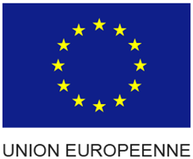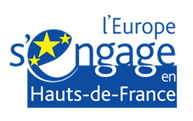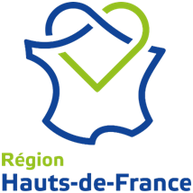Local environment
The development of the cluster's activities is made possible by the presence, within the University of Lille, of the following entities, on which UPCAT relies for the development of basic research:
- The MATCAT research team (UCCS UMR 8181 Laboratory), specialized in the design and optimization of specific catalysts.
- The VAALBIO research team (UCCS), whose members have recognized expertise in the field of catalytic conversion of biomass.
- The REALCAT high-throughput screening platform, which enables accelerated selection of catalytic formulations tested in parallel through the use of synthesis robots.
- The UCCS pilot hall, in which catalytic pilots are set up to assess the properties of the catalysts under realistic reaction conditions, on real or reconstituted feed and under temperature, pressure and flow conditions comparable to the conditions industrial.
The two research teams involved each have recognized expertise in their field (more than 20 scientific publications / year for each team, nearly 20 patents over the last ten years, more than 50 participations in national and European scientific projects and partnership activity supported given the applicative nature of heterogeneous catalysis research). These two teams rely on the REALCAT cluster (PTICM platform), which accelerates scientific innovation and the acquisition of new skills. In fact, parallel synthesis reactors (up to 24 reactors) for the preparation of supported catalysts allow the production of series of catalysts that can be tested, within the same platform, on high throughput catalyst reactors (8-24 reactors in parallel). The available configurations (gas phase, liquid phase, high temperature, high pressure) cover most of the configurations encountered in the field of biomass recovery. In order to promote the transfer of innovations to industry, the UPCAT platform relies on the pilot hall and the skills of researchers and technical support involved in the development of catalytic pilots on real loads. The insertion of the UPCAT cluster in this environment ensures rapid development and increased efficiency.
Finally, UPCAT relies heavily on the analytical platforms of the "Materials and Chemistry" sector, brought together within the Institut Michel-Eugène Chevreul Research Federation (IMEC, FR 2638), and on the Technological Platform for Engineering in Chemistry and Materials (PTICM).
Regional environment
In addition to UMR UCCS and FR IMEC, the UPCAT project relies heavily on the expertise of the Laboratory of Ceramic Materials and Processes (LMCPA, UPHF) and in particular its "Solid Materials" team. This is in charge of the upstream scientific resourcing of ceramics, but also of obtaining structured objects, as well as evaluating and strengthening their mechanical and thermal resistance.
In addition, the UPCAT technological platform is associated with the "Interfaces and Divided Media" team (TIMR laboratory, UTC) and the technological platform with the dual specificity of materials / CATALEO process engineering. This team presents recognized expertise in chemical engineering and for the study of divided media.



